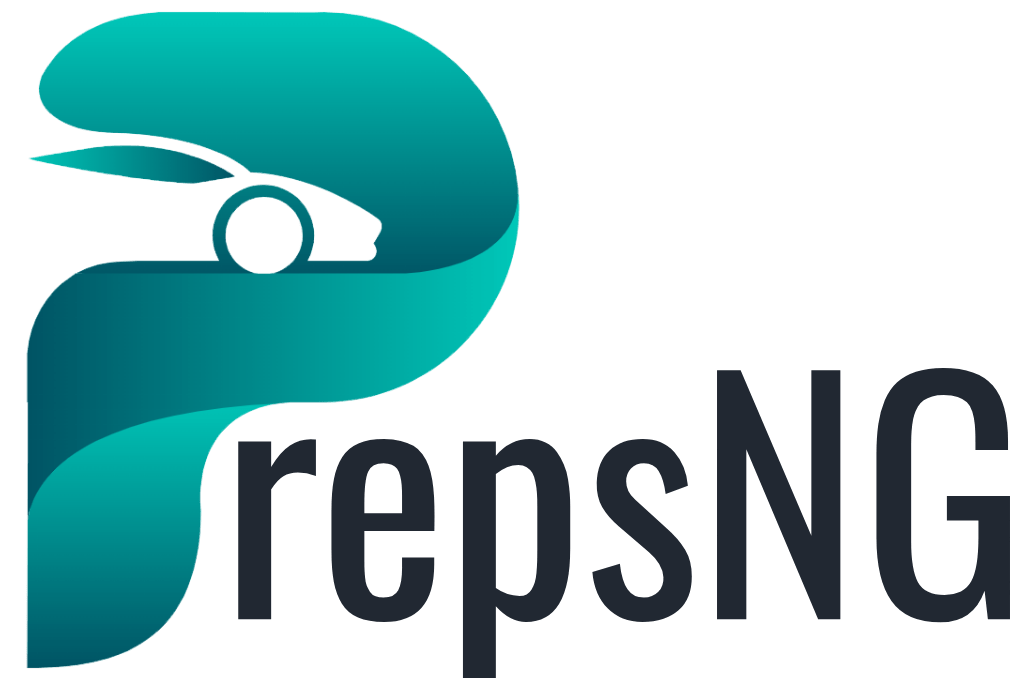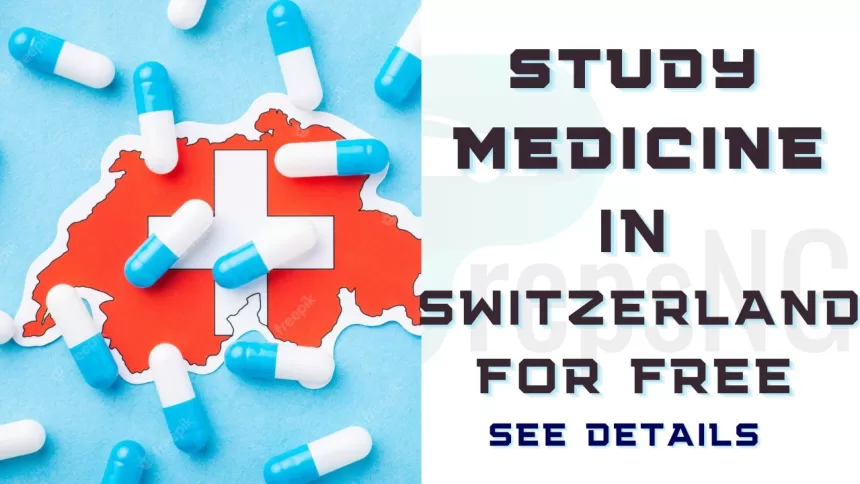Study Medicine in Switzerland: Switzerland is a top global study destination for medicine, with world-class universities, cutting-edge research and practical training opportunities. For Nigerian students, the prospect of tuition-free medical programmes makes Switzerland even more appealing.
This guide outlines key requirements for international students to gain admission into English-taught MBBS and other undergraduate medicine programmes in Switzerland along with insights on tuition-free medical universities. Let’s get right into all the details you need as an aspiring medical student!
Why Study Medicine in Switzerland?
Here are key reasons why Switzerland is a top study destination for medicine:
Join any of our Social Media Pages to receive Latest Updates!- Top-ranked universities – Swiss medical schools like ETH Zurich and University of Basel are highly reputable global institutions.
- English-taught programs – Many bachelor, master and PhD medicine programs are fully taught in English.
- Practical learning – The medical study curriculum combines theory with extensive hospital internships.
- International student support – Universities provide robust support from visa processing to accommodation.
- Diverse student community – You get to meet and interact with people from around the world.
- Potential for permanent residence – Non-EU students can stay and work in Switzerland post-study.
Overall, Switzerland provides an outstanding, globally-recognized medical education experience.
Tuition-Free Medical Universities in Switzerland
Here are the top accredited universities offering medicine programs for international students:
1. University of Zurich
- Offers Bachelor’s, Master’s and PhD programs fully in English
- 7 hospitals for practical learning
- Ranked #11 for Medicine worldwide
2. University of Basel
- 6-year English-taught Bachelor of Medicine program
- Partnership with University Hospital Basel
- Excellent research and teaching reputation
3. University of Geneva
- Bachelor’s degrees in Medicine taught in English
- Strong focus on community healthcare
- Links with WHO and UN health agencies
4. University of Lausanne
- English-taught Bachelor’s of Medicine
- Cutting-edge facilities and research
- Affiliated with CHUV University Hospital
5. ETH Zurich (Swiss Federal Institute of Technology)
- Ranked 23 globally for Life Sciences & Medicine
- Integrated BSc/MSc in Human Medicine
- Also Masters in Biomedical Engineering, Molecular Life Sciences etc.
So those are some great options to consider for medical studies in Switzerland. But what are the entry requirements?
Entry Requirements for International Students
To study medicine as an international student in Switzerland, the typical requirements are:
- Undergraduate Degree: Recognised Bachelor’s degree in natural sciences or health-related field with a strong GPA – minimum 3.0 or equivalent.
- Standardised Tests: MCAT score above 500 or UCAT score in top percentiles. Some universities accept GAMSAT, BMAT or SAT.
- English Proficiency: IELTS or TOEFL score – minimum 6.5 in IELTS, 90 in TOEFL.
- MCAT or UCAT: High scores in MCAT or UCAT admissions test.
- Recommendations: Letters of recommendation highlighting your academic merit and passion for medicine.
- Personal Essay: Convincing statement of purpose showcasing your motivation and alignment to programme.
- Resume: Demonstrating relevant work experience, extracurricular activities and achievements.
- Interview: Excel in admission interview assessing aptitude, knowledge and communication skills.
Entry Requirements for Nigerian Students
To study medicine in Switzerland, typical admission requirements are:
Join any of our Social Media Pages to receive Latest Updates!Academic Qualifications
- WAEC/NECO with minimum of 5 credits and B3 grade in core science subjects
- Bachelor’s degree in medical sciences or related field
- GPA of at least 3.0 on 4.0 scale
Standardized Test Scores
- IELTS score of 6.5+ or TOEFL 90+
- GRE General Test percentile scores above 60%
Letters of Recommendation
- From 2-3 professors familiar with academic abilities
Personal Essay
- Demonstrating motivation to study medicine in Switzerland
Extracurricular Profile
- Clinical experience, research, leadership skills
Application Forms
- Completed online forms before deadline
Meeting direct entry medicine admission requirements is highly competitive for Nigerians. Alternate pathways include foundation courses or medicine-related bachelor’s programs in Switzerland first.
How to Get Tuition-Free Medical Education: Scholarships for Nigerians and International Students
The high cost of studying medicine in Switzerland can be prohibitive with fees ranging from €3000-€4000 per semester plus living expenses.
Thankfully, several scholarships make quality medical education accessible for Nigerian and International students, including:
1. Swiss Government Excellence Scholarships
- Covers living, tuition and insurance costs
- For graduate and postgraduate students
- Worth up to 29,000 CHF per annum
- Apply Here
2. University of Basel Scholarships
- Merit-based scholarships for top admitted students
- Covers up to 100% of tuition and living costs
3. University of Zurich Scholarships
- UZH Excellence Scholarships for top students
- 100% coverage of tuition and living costs
4. University of Geneva Excellence Master’s Scholarships
- Full scholarships for exceptional graduate students
- Includes tuition waiver and stipend
5. ETH Zurich Excellence Scholarship
- 100% coverage of tuition and living costs
- For undergraduate and masters students
Leverage these amazing fully-funded scholarships for affordable medical education in Switzerland as a Nigerian student.
Student Visa Application Process for Medical Students
To study in Switzerland as an international or Nigerian student, you’ll need to apply for a national visa (Type D). Once accepted into a medicine program, International and Nigerian students can apply for a visa by:
- Filling out the Swiss national D visa application form
- Providing proof of admission, financial support, qualifications
- Booking appointment at the Swiss Embassy in Abuja or Lagos
- Attending visa interview with supporting documents
- Obtaining visa approval letter within 15 days
The student visa process costs about ₦51,000 excluding travel expenses. Begin the process early to accommodate processing time.
Cost of Living and Other Expenses
Annual living costs for international medical students are around 15,000 – 20,000 CHF including:
- Housing – 800 CHF per month
- Health insurance – 100 to 150 CHF monthly
- Food and supplies – 500 CHF per month
- Transportation – 100 CHF monthly pass
Total yearly costs can range from 40,000 – 60,000 CHF depending on lifestyle. Tuition fees for non-free universities add to costs.
Application Process and Timelines
- May to August – Research universities and programs. Check entry criteria.
- September – Submit online application along with required documents like transcripts, test scores, letters etc.
- November to January – Selected applicants get invited for tests, interviews and further assessment.
- February to May – Admission results are announced. Accept offer and apply for student visa.
- Mid-August – Classes begin for the Fall semester intake. Plan housing.
Career Prospects after Studying Medicine in Switzerland
What possibilities exist after completing your medical program in Switzerland?
Pursue specialization
- Continue into Swiss residency programs and specialize in fields like cardiology, oncology, pediatrics etc.
Clinical practice
- Work as a licensed physician in Switzerland’s world-class hospitals and clinics.
Medical research
- Join research teams tackling cutting-edge health topics in Switzerland’s renowned life sciences sector.
Global opportunities
- Work as a doctor worldwide in locations like the EU, UK, Middle East etc.
Switzerland offers a strong foundation to build a successful international medical career in academia, research or clinical practice.
Next Steps for Aspiring Doctors
I hope this guide highlighted insights and opportunities for Nigerians and International Students looking to study medicine affordably in world-class Swiss universities through scholarships.
Some recommended next steps include:
- Research entry criteria thoroughly for your chosen Swiss medical schools
- Start preparing academically to meet admission requirements
- Arrange for internships or shadowing to gain clinical experience
- Apply for scholarship funding from early on
- Work on English fluency and standardized test scores
- Start the visa process promptly after receiving your admission offer
Studying medicine in Switzerland is a big investment into your future as a doctor. With smart preparation and financial planning, top medical education is within your reach.
FAQs on Studying Medicine in Switzerland
Here are some key questions on medical studies in Switzerland:
Do I need to learn German or French?
No, there are medical programs fully taught in English. But basic language skills help for daily life.
Can I work part-time during medical school?
Yes, students can work up to 15 hours per week during studies and full-time during vacations.
How expensive is living in Switzerland?
You will need about CHF 1500-2000 monthly for accommodation, food, health insurance etc. Budget higher for cities like Zurich or Geneva.
What is the cost of living in Switzerland?
Living costs in Switzerland as international student range from 1,500 – 2,000 CHF per month covering housing, insurance, food, transport etc.
What are my stayback opportunities after medical school?
Non-EU students can stayback up to 6 months after graduation to seek employment. This may be extended if you find professional work related to your degree.
Are international students eligible for Swiss residency?
Yes, non-EU students who graduate from Swiss universities can obtain residency permits without employer sponsorship.
Wrapping Up
Switzerland provides an outstanding destination to gain your medical qualifications, especially with English-taught and tuition-free programs.
Its reputable universities deliver rigourous curriculums augmented by practical hospital training, preparing you for a thriving career.
If you meet the language, academic and visa requirements, don’t miss this chance to study medicine affordably in one of the world’s most advanced healthcare systems!
Let me know in the comments if this guide was helpful. And please share it with any pre-med students who may benefit from studying medicine in Switzerland!
I hope this post has answered all your queries. If you have any questions or comments about Study Medicine in Switzerland: Entry Requirements and Tuition-Free Universities, please feel free to leave them in the comments section below, I will be happy to answer them. And don’t hesitate to share it with others who might find it helpful too!!



![Babcock University School Fees [year]/[nyear]: Everything You Need To Know 2 Babcock University School Fees](https://www.preps.ng/wp-content/uploads/2024/01/Babcock-University-School-Fees-150x150.jpg)



![How to Check WAEC Result in [year] | Step-by-Step Guide 9 How to Check WAEC Result](https://www.preps.ng/wp-content/uploads/2023/08/How-to-Check-WAEC-Result-330x220.webp)

![YABATECH Registration Procedure for Newly Admitted Students [year] 13 YABATECH Registration Procedure for Newly Admitted Students](https://www.preps.ng/wp-content/uploads/2024/02/YABATECH-Registration-Procedure-for-Newly-Admitted-Students-330x220.jpg)
![Redeemer's University Dress Code and Approved Items for Fresh Students - [year]/[nyear] Guide 15 Redeemer's University Dress Code and Approved Items for Fresh Students](https://www.preps.ng/wp-content/uploads/2023/09/Redeemers-University-Dress-Code-and-Approved-Items-for-Fresh-Students-330x220.webp)
![University of Ibadan Course Registration Guidelines for [year]/[nyear] Session 17 University of Ibadan Course Registration Guidelines](https://www.preps.ng/wp-content/uploads/2023/09/University-of-Ibadan-Course-Registration-Guidelines-330x220.webp)

![FULOKOJA Registration, Clearance & Medical Guidelines for Newly Admitted Students [year]/[nyear] 21 FULOKOJA Registration, Clearance & Medical Guidelines for Newly Admitted Students](https://www.preps.ng/wp-content/uploads/2024/03/FULOKOJA-Registration-Clearance-Medical-Guidelines-for-Newly-Admitted-Students-330x220.jpg)
![OAU Course Registration Guidelines [year]/[nyear] 23 OAU Course Registration Guidelines](https://www.preps.ng/wp-content/uploads/2023/09/OAU-Course-Registration-Guidelines-330x220.webp)
